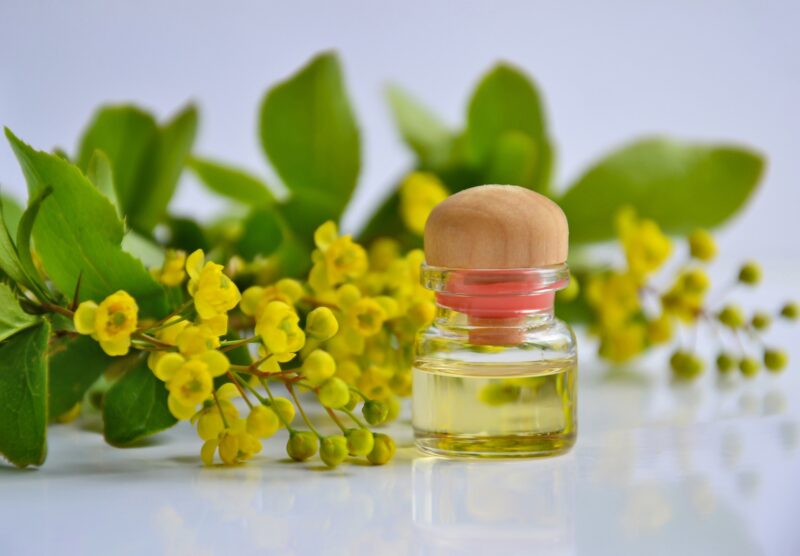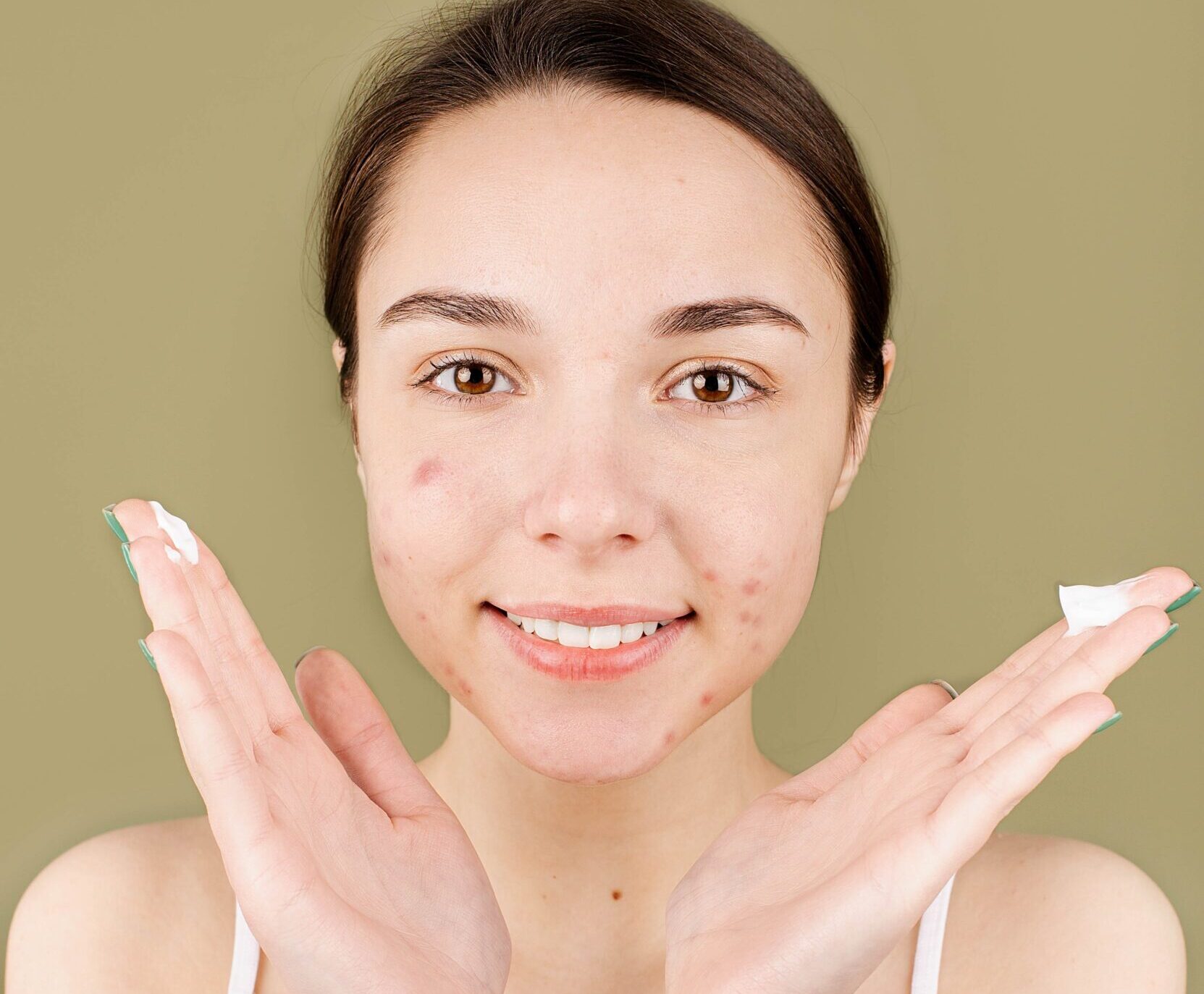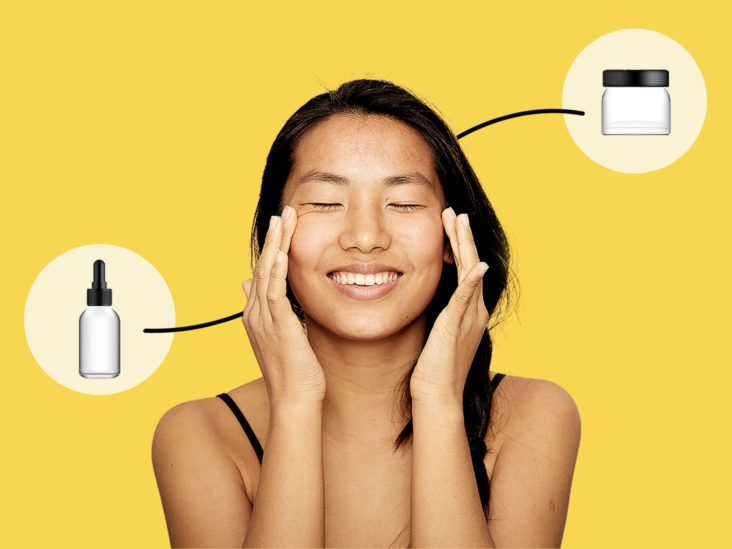It seems counterintuitive to put oil on your face when most of us don’t want to look oily—especially if we already happen to have oily, acne-prone, or combination skin. But that hasn’t stopped companies from making new face oils seemingly every week.
They usually smell great and feel luxurious, but are they actually doing anything for you? Experts tell us that the answer to that depends on both the oil and your skin.
Yes, your skin already makes oil.
And it plays a really important role in keeping you hydrated by protecting the outer layer of your skin. Here’s how that works:
The one type of oily substance you probably know about already is called sebum, which is secreted by the skin’s sebaceous glands and contributes to the noticeable oiliness on the face.
But there are also other lipids (fats and oils) produced by cells in the stratum corneum, the protective outer layer of skin that functions as the skin’s primary protection against water loss. Together, the oils produced by your skin keep the layers of your skin soft, seal hydration in, and protect against allergens and pathogens by keeping the stratum corneum in tact.
Any oil is hydrophobic, including the oils that your face produces, which means that they’ll keep water from escaping. And that in turn keeps your skin hydrated. “Hydration is really a function of water balance, so oils help hold water in and prevent the environment from stripping water out,” Tyler Hollmig, M.D., director of Laser and Aesthetic Dermatology at Stanford Health Care, tells SELF.
“You can think of the skin kind of like a brick wall with skin cells representing the bricks and lipids [fats and oils] representing the mortar,” he explains. “Skin oils [that your face naturally produces] are critical to maintaining the barrier and minimizing water loss, which is essential for healthy, hydrated skin—and for preventing outside chemicals and irritants from entering the skin.”
Without natural oils, your skin will be dry.
Remember how your skin cells are like bricks and the oil is like mortar?
Well, without the oils that your skin makes, the bricks can separate, allowing water to escape from your skin (a process referred to as transepidermal water loss) and causing dryness and flakiness.
Many people have dry skin because their skin does not naturally produce enough oil to keep that outer layer of skin—which keeps hydration in—functional.
On the other hand, if your skin is oily, that’s because your skin produces too much oil (sebum).
But, of course, it’s not always that simple. Using harsh skin-care products (like some acne products) can either dry out your skin or even cause the skin to produce more oil in response to dryness, the American Academy of Dermatology (AAD) explains. “People with oily skin tend to think that a moisturizer will make the problem worse,” Joel Schlessinger, M.D., board-certified dermatologist from Omaha, Nebraska, tells SELF. “However, neglecting to hydrate your skin is a key component in excess sebum production.”
And then there are people with combination skin, meaning that it’s both dry and oily. Basically, everyone could use some type of moisturizer. But whether or not an oil will help moisturize your skin depends on your skin type and the oil.
What do facial oils do, exactly?
Facial oils are seemingly everywhere right now, and they have a long history in skin care. In fact, the ancient Egyptians reportedly used oils in cosmetics as early as 4500 B.C.E. But what do face oils actually do?
The basic idea is that putting an oil on your face will help supplement the natural oils your skin is (or isn’t) producing in an effort to add moisture to your skin and help repair the barrier that keeps that moisture in.
Depending on the type of oil—jojoba, maracuja, coconut, argan, tea tree, etc.—the oil may naturally have other purported benefits, like anti-inflammatory or antioxidant properties, but those are bonuses. The biggest benefit that comes with an oil is the moisturizing benefit.
So, how do moisturizers work? There are essentially three ways a moisturizer can increase the water level in your skin.
First, humectants, such as glycerin, are often found in moisturizers and actually add water back to the skin, John G. Zampella, M.D., assistant professor in the Ronald O. Perelman department of dermatology at NYU Langone Health, tells SELF. They can attract water molecules and draw them into the skin. These are inherently hydrating. Interestingly, oils don’t typically fall into this category.
The other types of moisturizers are emollients (which are used to soften and strengthen the outer layer of skin by filling in the spaces between skin cells) and occlusives (which act like sealants to keep water in)
. In general, oils fall into the occlusive and emollient categories, Jeremy A. Brauer, M.D., a New York–based dermatologist, tells SELF.
“Most oils that are applied to the skin end up forming more of a protective barrier on its surface, rather than actually penetrating the skin,” Dr. Hollmig agrees.
So, although oils are moisturizing and may indirectly increase the amount of hydration in the skin, they are not technically hydrating.
The crucial factor here is the size of the fatty acid molecules that make up the oil. If they’re too big to get through the skin barrier, they sit on top and act as occlusives. If they’re small enough to get through, they may be able to penetrate to deeper layers and strengthen the stratum corneum. For instance, research suggests that jojoba oil and argan oil can actually help repair the skin barrier.
Plus, some oils come with other benefits, such as antioxidants or anti-inflammatory properties, that might make them beneficial for certain skin concerns. Whether or not an oil is the best choice for that issue is another question.
Different face oils claim to combat different skin concerns—and it’s not always about hydration.
“The problem with a lot of these oils is there’s like a new flavor of the week every week,” Dr. Zampella says. “There’s a new oil that somebody’s trying out on their skin all the time, so there’s just not a lot of data to say this definitely works for this or that.”
There are some oils that we know more about than others, he says. Tea tree oil, for instance, has been shown to have some antibacterial and antifungal properties that can be useful for acne and seborrheic dermatitis, SELF explained previously. And rose hip oil is often touted as having antioxidant benefits.
So, even though the biggest benefit you might get from using an oil would be moisturizing, some oils are marketed as having other benefits.
But every single oil product hasn’t been researched—and your derm probably isn’t going to recommend tea tree oil or rose hip as a first-line treatment over something like, say, a salicylic acne medication or topical retinoid that’s been in clinical trials and proven to work in a specific formula.
Oils may be appealing to some consumers because they’re touted as being “natural” or because they may be more accessible than whatever a dermatologist recommended. And, of course, those are valid reasons to use a product.
But when we’re talking about treating or managing specific skin conditions, there’s almost always a product that has more peer-reviewed research or clinical trials behind it.
“Why would you [use] an oil that has an unknown concentration of something in it when you could [use] something that has a known concentration of that?” Dr. Zampella says. You don’t necessarily know if it’s going to be effective and you also don’t know the potential dangers of putting it on your skin.
“Because we are dealing with cosmetic products—not drugs—it’s difficult to know what each patient is actually putting on her skin and how she’s likely to respond to it,” Dr. Hollmig says. “This is particularly important with oils, where [certain products] have been shown to cause allergic skin reactions in a certain portion of the population.” (After all, it’s the oil in poison ivy that causes its characteristic rash, Dr. Zampella says.) Therefore, patients with sensitive skin or known allergies to botanical ingredients may need to be extra cautious when using an oil. As a reminder: Just because something is natural doesn’t mean it’s inherently safe.
Here’s what you need to know if you want to try a face oil.
Like any skin-care product, oils are not for everyone. But that doesn’t mean they aren’t worth a try. Still, there are some general things to keep in mind when looking for an oil based on your skin type.
For dry or dehydrated skin: Dry skin is most likely to reap benefits from using face oils. “Dry skin often results from the loss or disruption of its barrier function, which when intact, effectively traps water,” Dr. Brauer says, which could be a product of overwashing, overexfoliating, or just not producing enough oils naturally. “So the application of oils, acting as an occlusive agent aids in the prevention of water loss,” he says.
The most effective way to rehydrate dry skin, however, is to drink enough water throughout the day.
And even those with dry skin who use a face oil as a moisturizer may need another moisturizing product on top of that depending on how effective and occlusive the oil is.
For oily or acne-prone skin: “I would say that as a general rule for people who have acne-prone skin or oily skin, putting an oil on your face is probably not what you want to do,” Dr. Zampella says.
That said, face oils aren’t totally off limits to people with oily or acne-prone skin, Joshua Zeichner, M.D., director of cosmetic and clinical research in dermatology at Mount Sinai Medical Center, tells SELF.
But you’ll have to choose one with care. We know that certain oils, like tea tree oil, can help reduce acne and inflammation, Dr. Zampella says. (But there are other products that may be more effective at treating acne and that we know more about, such as salicylic acid and retinoids.)
So, if you want to try it and you feel like it helps, that’s fine, Dr. Zampella says. “Not only do we not have clinical trials [for every single product on the market], but everybody’s skin is a little bit different,” he says.
But it’s worth talking to your derm about your options beforehand to make sure you’re using something that won’t cause more issues and that you’re not overlooking another option that might be better for you.
Whether you’re using an oil or not, making sure your skin is hydrated (with a face oil or other type of moisturizer) is just as important for oily skin as it is for dry skin and can actually help reduce oiliness. It’s also especially important if you’re using harsh, drying acne products, as we mentioned above.
In addition to whatever other products you’re using, Dr. Schlessinger advises those with oily skin to use a moisturizer (that probably isn’t a face oil) to help manage the skin’s hydration.
For sensitive skin: Those with sensitive skin will need to be on the lookout for specific ingredients that may cause irritation, such as tea tree oil. So, if you have sensitive skin, Dr. Zampella suggests performing a patch test on the inner arm before using any face oil.
Once you feel safe using the product, you can go ahead and choose face oils depending on your other skin concerns.
If your skin’s sensitivity is caused or exacerbated by dryness, using an oil may even help calm your skin by improving hydration.
As usual, the best place to get your questions answered is your derm.
Not all oils are created equally. And because most oils haven’t been heavily studied, we don’t know much about what each oil is doing or the best way to use it.
“With so many new and fad ingredients on the market, we honestly just don’t have data showing that many of these products give therapeutic benefits beyond moisturizing.” Dr. Zeichner says.
That’s why it’s important to do as much of your own research as possible before using a new oil.
or any new product, really—and consult a board-certified dermatologist who can help make recommendations about how to best care for your skin.
You may also intrested in this ARTICLE too.
there are some face oils benefit your skin alot.









2 thoughts on “What You Should Know Before Using a Trendy New Face Oil”
You actually make it seem so easy with your presentation but I find this topic to be really something which I think I would never understand.
It seems too complicated and extremely broad for me.
I’m looking forward for your next post,
I’ll try to get the hang of it!
Thank you for another informative site. The place else may just I am getting
that type of information written in such an ideal manner?
I have a project that I’m just now running on, and I’ve been on the glance out
for such info.